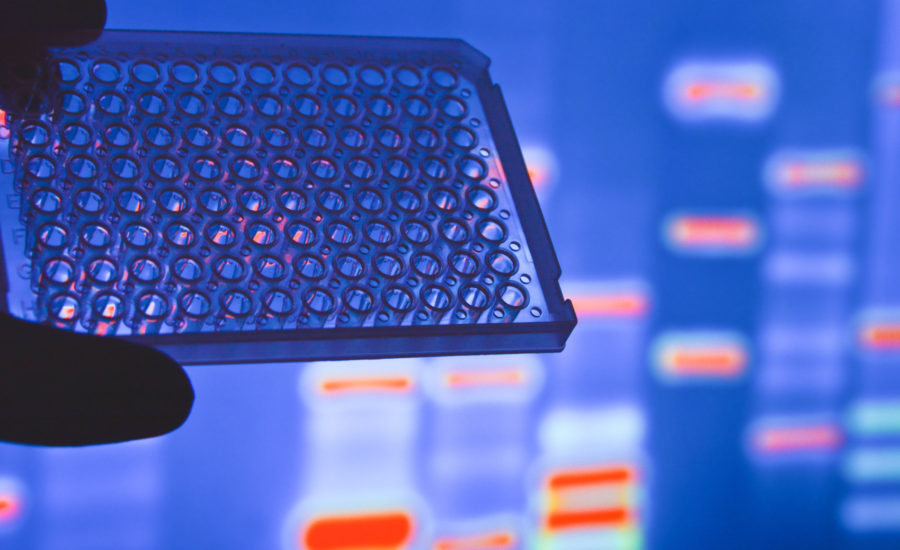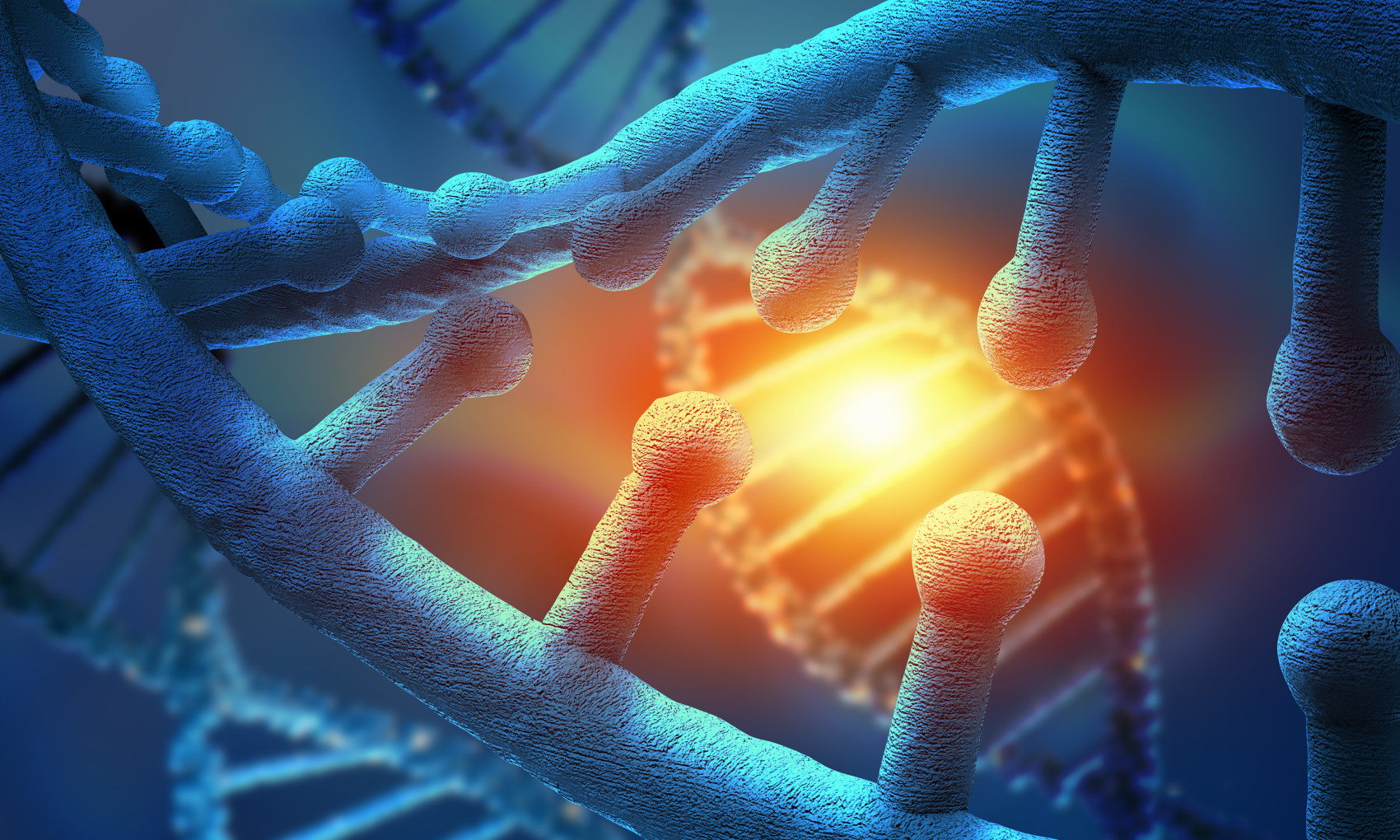Boost
Is Targeted Therapy Right For You?

Just as there are many types of cancer, not all cancer share the same genetics, which is where targeted therapy comes in.
Cancer is usually thought of as a family of diseases caused by uncontrolled cell growth that can occur in any part of the body. Despite its many forms, cancer is ultimately the result of damage to our genes, the codes that regulate the body’s cells.
Each cancer has a unique set of gene changes (or “mutations”) that allow cancer cells to grow and spread throughout the body. Targeted therapies use various drugs to take advantage of the genetic behaviors and vulnerabilities specific to mutated cells to fight cancer.
Targeted therapy is a major part of the growing field of precision medicine using gene information to prevent and treat diseases. By customizing drugs to a patient’s particular cancer, these therapies can avoid damaging healthy cells while leading to greater survival success.

Targeted Therapy vs. Traditional Chemotherapy
Targeted therapy is considered a type of chemotherapy, and it is often used together with other cancer treatments (like radiation and surgery). It can also help make traditional chemotherapy drugs more effective.
But, unlike chemotherapy, targeted therapy focuses on the differences between normal cells and cancer cells.
Because cancer cells form faster than most normal cells, traditional chemotherapy works by killing cells that grow and divide quickly. Unfortunately, these medications also damage some of the body’s naturally fast-growing cells (like skin, hair, intestinal, and bone marrow cells). This leads to some of the well-known unpleasant side effects of chemo.
Targeted therapy focuses on the genetic features that are unique to cancer cells.
Cancer occurs when a change to a gene (called a mutation) causes a cell to act abnormally. Mutations change the instructions of a cell to grow too quickly and live longer, resulting in a tumor. Certain proteins, influenced by the mutations in cancer cells, fuel these changes.
Targeted drugs can lock on to these proteins, and other abnormalities, that create the cancer-causing behavior of these cells. By narrowing in on cells with cancer-related genetic features, many healthy cells remain undamaged.

How Targeted Therapies Fight Cancer
There are several ways targeted therapy drugs destroy and stop the growth of cancer cells.
Immune system support
The immune system is the body’s natural protection against disease and damaged cells. But some cancers have the ability to hide from the immune system to grow and spread through the body.
Targeted therapies called immunotherapy can help the immune system work past cancer cells’ defenses.
-
Flagging cancer cells
Antibodies are the immune system’s way of tracking down and destroying harmful cells. One form of targeted therapy uses laboratory-made antibodies (called monoclonal antibodies) to attach to cells with cancer-related mutations. This alerts the immune system to find and destroy cancer cells, while healthy cells remain largely unaffected.
-
Boosting immune response
The immune system also uses “checkpoints” to activate its defense responses. These are molecules that act like an “on” switch that tell immune cells when to attack.
Some cancer cells have a protein (called PD-1) that keeps these immune switches from turning on, letting them hide from an immune attack. Drugs that keep PD-1 from blocking these checkpoints can boost the immune response against cancer cells.
-
Proteasome Inhibitors
Another form of targeted therapy used to block tumor cell lifespan is a proteasome inhibitor. Proteasomes are enzymes that play a role in the regulation of proteins that control cell growth. Because are vital for the proliferation and survival of particular cancerous cells, inhibitors serve as a great modality of cancer therapy.
-
Delivering treatments to cancer cells
In some targeted therapies, monoclonal antibodies are joined to a chemotherapy drug or a radioactive particle. The antibody then works as a targeted missile used to deliver these treatments directly to cancer cells.
-
Blocking cancer cell growth & lifespan
Cancer cells grow uncontrollably because a mutation signals them to divide more and live longer than they normally should. In addition to helping the immune system, monoclonal antibodies can attach to cancer cells and:
- Block the proteins caused by gene mutations that tell cancer cells to grow and divide.
- Block the protein changes that allow cancer cells to live longer.
For example, about 20% of breast cancer patients have too much of certain protein (HER2/neu) caused by a cancer cell gene mutation. This protein promotes the uncontrolled growth cells that lead to breast cancer. The drug Herceptin can target the HER2/neu protein and block mutated cells from getting the signal to grow.
-
Signal transduction inhibitors
Finally, another form of therapy is signal transduction inhibitors. Signal transduction is the process by which a cell creates and amplifies a certain response through signaling molecules. Signal transduction inhibitors disrupt these cell signals in tumor cells to discourage growth and metastasis.
Stopping tumor blood supply
Tumors need a blood supply to continue growing. Cancer cells can signal the body to create new blood vessels that tumor then use to fuel themselves. Certain targeted drugs, called angiogenesis inhibitors, can:
- Stop the creation of blood vessels that fuel tumors.
- Destroy existing blood supplies to tumors.
Hormone regulation
Some forms of breast and prostate cancer are fueled by certain hormones. Hormone targeted therapy can:
- Prevent the body from making hormones that fuel cancers.
- Prevent hormones from attaching to cancer cells.

The Potential of Precision Medicine
Targeted therapy has been a game changer for cancers like chronic myelogenous leukemia (CML). CML cells contain an abnormal gene (called BCR-ABL) that creates a protein that causes CML cells to grow and reproduce uncontrollably. The drug Gleevec targeting this cancer protein has increased survival of CML from only 30% of patients five years after being diagnosed to almost 90%.
There are targeted therapies for colorectal cancer, head and neck cancer, breast cancer, multiple myeloma, lymphoma, prostate cancer, melanoma and many other cancers.
A crucial step toward developing more specific and less damaging therapies is to better understand the genetic makeup of individual cancers. The future of precision medicine will be guided by gene-reading technology like next-generation sequencing.
As medicines become more personalized to a patient’s genetics, researchers hope to design treatments with greater survival success and fewer side effects.




